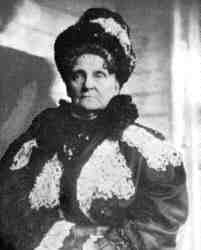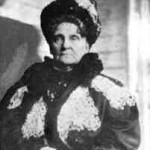Hetty
The Genius and Madness of American’s First Female Tycoon
by Charles Slack (2004)
If known for anything at all today, Hetty Green is most likely known only through her “World’s Greatest Miser” entry in the Guinness Book of World Records. Having read the above thoroughly enjoyable biography and given her the benefit of the doubt for as long as possible, I will no longer attempt to demur on this point. That said, Hetty Green has many other qualities to commend her.
A woman
The above heading is not intentionally fatuous. The achievement of becoming one of America’s richest citizens and, as the book explains, almost a lender of last resort to New York at the turn of the last century, cannot be underestimated. That she did it, albeit after a substantial inheritance, without establishing an enterprise of any sort and entirely through her own resourcefulness and investing prowess is remarkable.
Background
Born in 1834, the same decade that produced Andrew Carnegie, JP Morgan, and John D. Rockefeller, Hetty found herself the daughter of a Quaker and owner of New Bedford’s most successful whaling fleet. At an early age she learned the vocabulary of finance by reading the financial press to her grandfather.
When her father died, Hetty inherited a sum equivalent today to about $70 million dollars, not exactly a trifle. To her considerable frustration, however, it was largely in a trust and so paid her an income only. Soon afterwards, Hetty’s Aunt Sylvia died and a fierce and rather grubby court case ensued. Arguments went backwards and forwards about various wills, forged signatures and inappropriately influential doctors. Charles Slack revels in the unpleasant nitty-gritty, and it is intriguing, but the upshot is that Hetty may well have forged a signature in an attempt to secure the entire bequeath for herself, rather than allowing it to be partially distributed amongst local charities. Charity begins at home, as they used to say. In the end, she wound up with another pot of money shielded from her by means of a trust fund, to her extreme frustration.
And she’s off
Despite her relative youth and habit of endlessly haranguing the staff for their want of thrift, Hetty managed to meet an affable and successful banker. Having signed pre-nups, she married him and things proceeded relatively smoothly until it transpired that he had run up a $700, 000 debt to the same bank at which she kept her cash on deposit. When the bank ran into trouble, the Manager insisted that her deposit be used as collateral for her husband’s debt. Again, and after another huge row, Hetty had no choice but to agree. At this point, Hetty cut her feckless husband loose and embarked full-time on her favourite pursuit of making money–all of her time was spent analysing railroad bonds, making and managing investments, and waging battles (including once by means of a gun!) with her dastardly adversary Collis P. Huntington. Her money multiplied many times over until it is estimated that–in today’s dollar–she turned it into nearly $4 billion.
Miser
CS shares numerous anecdotes about Hetty’s stinginess, but here are a few of my favourites:
- She disguised herself and took her son to see only charity doctors at the time of a bad leg accident he had suffered; this was to avoid the “millionaire’s premium” commonly charged to the financially well-endowed. Sadly, her son’s leg condition continued to deteriorate, eventually resulting in amputation. Sometimes the price of not being a patsy is quite high, but I think she is far from alone in her suspicion and loathing of doctors.
- She instructed her washer-woman to wash only the hems of her skirts, that is, the parts that dragged through the New York mud, to protect the body of the skirts from the ravages of soap and water.
- After leaving her feckless husband she chose to rent small flats in cheap neighbourhoods of New York (Brooklyn and New Jersey). She never stayed in one residence long enough to attract property taxes.
- Rather than pay the ridiculous Wall Street sandwich prices, she carried a pail of oatmeal to her office in the bank (where she used to pass her days cutting bond coupons). To this she would add water and cook it over a radiator.
- One lunch time, her bank manager was astonished to see her walking down the street carrying over $200,000 of securities in her black reticule. When he asked her why she did not take a private carriage, Hetty replied: “Perhaps you can afford to ride in a private carriage, but I certainly cannot.”
Redeeming features
Hetty had a fine, dry wit and a nice illustration of this was an incident where she had to instruct her son to disallow public officials from travelling free on one of her railroads. She armed him with a list of ten biblical-inspired rejections for every day of the week, for example: Monday–“Though shalt not pass.” (Numbers xx, 18.) Tuesday–“Suffer not a man to pass.” (Judges iii, 28.) Wednesday–“The wicked shall no more pass.” (Nahum I, 15), and so on.
Despite separating from her husband at the time of his fiscal irresponsibility, Hetty remained close to him and they once again became companions in old age. A few years before her own demise, Hetty quietly converted to her husband’s Episcopalian faith so that she could be buried beside him.
During the panic of 1907, a famous meeting was held by JP Morgan at his private library. The guests included the most prominent bankers and industrialists of the day and the issue at hand was the organising of a bailout to two of the city’s largest trusts, which had been on the brink of collapse. Needless to say, the bailout was agreed, however it was reported by the Times that a solitary woman “wearing a black veil” entered the meeting during the day and stayed for several hours. Although her presence was never officially confirmed, Hetty, who used to sport a black veil along with her customary sober black bonnets to give her privacy while travelling on public transport, was the only realistic candidate.
At a time when women were not even expected to handle their own money, much less have opinions on matters of finance, the fact that Hetty, in her uniquely unconventional and fiercely independent style, managed to haul herself up to the very top table, is a truly remarkable achievement. I think it is a shame that her steely personality and financial successes are not better appreciated today than they are.

